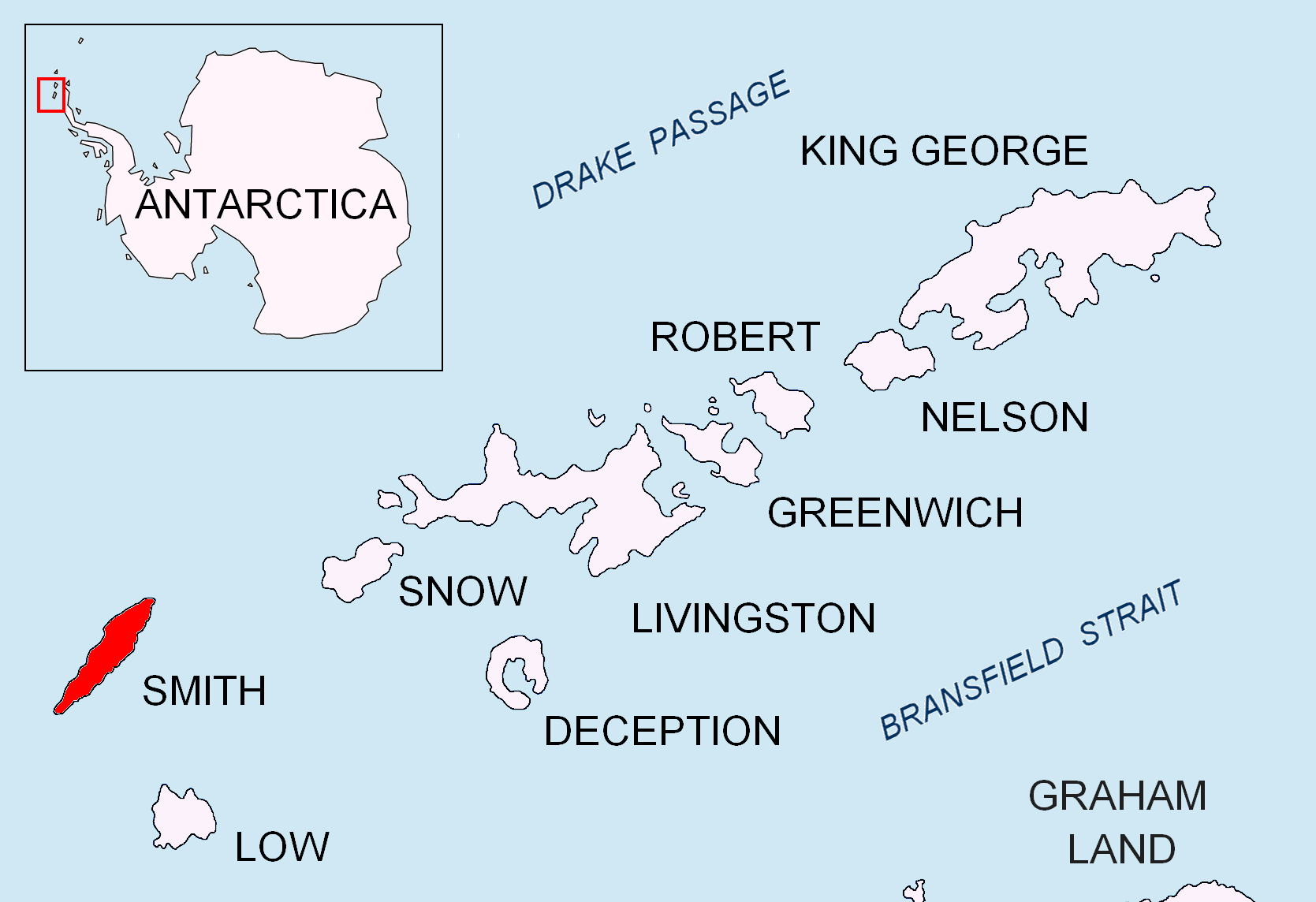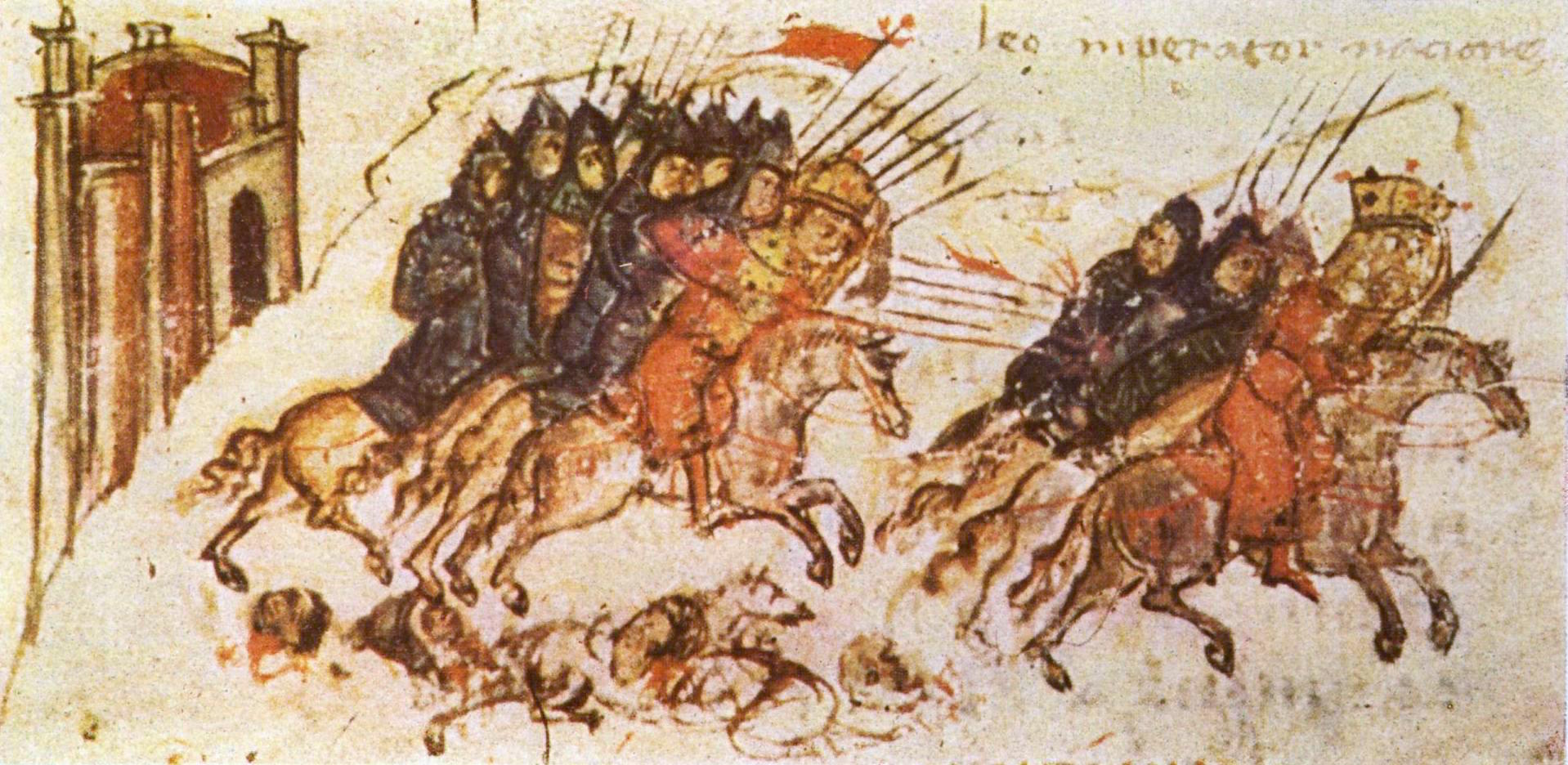|
Organa
Organa (Alpo-Morgan) was Kubrat's maternal uncle of the Ermi clan. According to John of Nikiu, he was regent (kavkhan) over the tribe of the Onogur Bulgars from 617 to 630 in place of his nephew, Kubrat, for the time Kubrat was growing up as a hostage in the Byzantine Empire. There is information that Organa accompanied Kubrat on his initial trip to Constantinople. Some historians have identified Organa with Gostun and Western Turkic Baghatur Qaghan (莫賀咄可汗 ''Mòhèduō Kèhán''). Panos Sophoulis considered that ''Organa'' is in fact a Turkic title (''or- ḡan/qan'') rather than a proper name. Honor Organa Peak on Smith Island in Antarctica Antarctica () is Earth's southernmost and least-populated continent. Situated almost entirely south of the Antarctic Circle and surrounded by the Southern Ocean, it contains the geographic South Pole. Antarctica is the fifth-largest contine ... is named after Organa. References See also * Nominalia of the Bulgarian k ... [...More Info...] [...Related Items...] OR: [Wikipedia] [Google] [Baidu] |
Organa Peak
Organa Peak ( bg, връх Органа, vrah Organa, ) is a peak rising to 1270 m in Imeon Range on Smith Island, South Shetland Islands. Situated 6.8 km northeast of Cape James, and 1.85 km south-southwest of Riggs Peak. Overlooking Letnitsa Glacier to the east and southeast, and Kremena Ice Piedmont to the south. Bulgarian early mapping in 2009. Named after the Bulgarian ruler Organa (7th Century AD), regent of Bulgars and uncle of Khan Kubrat Kubrat ( el, Κοβρᾶτος, Kούβρατος; bg, Кубрат ) was the ruler of the Onogur–Bulgars, credited with establishing the confederation of Old Great Bulgaria in ca. 632. His name derived from the Turkic words ''qobrat'' — .... MapsChart of South Shetland including Coronation Island, &c.from the exploration of the sloop Dove in the years 1821 and 1822 by George Powell Commander of the same. Scale ca. 1:200000. London: Laurie, 1822. * L.L. Ivanov. Antarctica: Livingston Island and Greenwich ... [...More Info...] [...Related Items...] OR: [Wikipedia] [Google] [Baidu] |
Kubrat
Kubrat ( el, Κοβρᾶτος, Kούβρατος; bg, Кубрат ) was the ruler of the Onogur–Bulgars, credited with establishing the confederation of Old Great Bulgaria in ca. 632. His name derived from the Turkic words ''qobrat'' — "to gather", or ''qurt'', i.e. "wolf". Origin In the '' Nominalia of the Bulgarian khans'' Kubrat is mentioned as ''Kurt'' (), being a member of the Dulo clan and reigning for 60 years having succeeded Gostun of the Ermi clan. Bulgars were Turkic nomadic people, who participated in the 5th-century Hunnic confederation. Upon Attila's death, the tribes that later formed the Bulgars had retreated east into the Black Sea-Caspian Steppe. The western Bulgar tribes joined the Avar Khaganate, while the eastern Bulgars came under the Western Turkic Khaganate by the end of the 6th century. Theophanes the Confessor called him "king of the Onogundur Huns". Patriarch Nikephoros I (758–828) called Kubrat "lord of the Onuğundur" and "ruler of the O ... [...More Info...] [...Related Items...] OR: [Wikipedia] [Google] [Baidu] |
Gostun
Gostun was a regent over the Bulgars for 2 years. Little else is known about him. It is possible that Gostun is an alternative name of Organa, who according to some Byzantine sourcesJohn of Nikiu, 6th-century historian was a regent over the Bulgars until Kubrat's return from Constantinople and was also member of the Ermi clan. Gostun Point on Snow Island in the South Shetland Islands, Antarctica is named after Gostun. See also *List of Ukrainian rulers This is a list that encompasses and includes all reigning leaders/rulers in the history of Ukraine. This page includes the titles of the Grand Prince of Kyiv, Grand Prince of Chernigov, Grand Prince of Pereyaslavl, Grand Prince of Galicia� ... References 6th-century births 7th-century Bulgarian monarchs 7th-century deaths {{Europe-royal-stub ... [...More Info...] [...Related Items...] OR: [Wikipedia] [Google] [Baidu] |
Bulgars
The Bulgars (also Bulghars, Bulgari, Bolgars, Bolghars, Bolgari, Proto-Bulgarians) were Turkic semi-nomadic warrior tribes that flourished in the Pontic–Caspian steppe and the Volga region during the 7th century. They became known as nomadic equestrians in the Volga-Ural region, but some researchers say that their ethnic roots can be traced to Central Asia. During their westward migration across the Eurasian steppe, the Bulgar tribes absorbed other tribal groups and cultural influences in a process of ethnogenesis, including Iranian, Finnic and Hunnic tribes. Modern genetic research on Central Asian Turkic people and ethnic groups related to the Bulgars points to an affiliation with Western Eurasian populations. The Bulgars spoke a Turkic language, i.e. Bulgar language of Oghuric branch. They preserved the military titles, organization and customs of Eurasian steppes, as well as pagan shamanism and belief in the sky deity Tangra. The Bulgars became semi-sedentary durin ... [...More Info...] [...Related Items...] OR: [Wikipedia] [Google] [Baidu] |
Külüg Sibir
Külüg Sibir or Baghatur Khagan (r. 630) was a ruler of the Western Turkic Khaganate (empire) in the 7th century. He was probably Tardu's son and the governor of the northern provinces of the empire during the reigns of his nephews. (''see'' Göktürk family tree) Background The Western Turkic Khaganate in present-day Turkestan was founded as the result of the partition of the main empire after the death of Tardu in 603. It was also called ''On Ok'' ("Ten arrows") referring to ten powerful tribes in the empire. Five tribes (so-called Dulo) to the northeast and five tribes to the southwest (so-called Nushibi) formed the two rival factions, the border line being Ili River. Revolt In 630, the Dulo clan of tribes together with the Karluks revolted against Tong Yabgu Khagan, the most successful ruler of the empire. Tong was supported by the rival Nushibi faction. Külüg Sibir murdered Tong (who was his nephew) and declared himself as the khagan with the support of the Dulo clan. ... [...More Info...] [...Related Items...] OR: [Wikipedia] [Google] [Baidu] |
Monarchs Of The Bulgars
A monarch is a head of stateWebster's II New College DictionarMonarch Houghton Mifflin. Boston. 2001. p. 707. for life or until abdication, and therefore the head of state of a monarchy. A monarch may exercise the highest authority and power in the state, or others may wield that power on behalf of the monarch. Usually a monarch either personally inherits the lawful right to exercise the state's sovereign rights (often referred to as ''the throne'' or ''the crown'') or is selected by an established process from a family or cohort eligible to provide the nation's monarch. Alternatively, an individual may proclaim themself monarch, which may be backed and legitimated through acclamation, right of conquest or a combination of means. If a young child is crowned the monarch, then a regent is often appointed to govern until the monarch reaches the requisite adult age to rule. Monarchs' actual powers vary from one monarchy to another and in different eras; on one extreme, they may ... [...More Info...] [...Related Items...] OR: [Wikipedia] [Google] [Baidu] |
7th-century Rulers In Europe
The 7th century is the period from 601 ( DCI) through 700 ( DCC) in accordance with the Julian calendar in the Common Era. The spread of Islam and the Muslim conquests began with the unification of Arabia by Muhammad starting in 622. After Muhammad's death in 632, Islam expanded beyond the Arabian Peninsula under the Rashidun Caliphate (632–661) and the Umayyad Caliphate (661–750). The Muslim conquest of Persia in the 7th century led to the downfall of the Sasanian Empire. Also conquered during the 7th century were Syria, Palestine, Armenia, Egypt, and North Africa. The Byzantine Empire suffered setbacks during the rapid expansion of the Caliphate, a mass incursion of Slavs in the Balkans which reduced its territorial limits. The decisive victory at the Siege of Constantinople in the 670s led the empire to retain Asia Minor which assured the existence of the empire. In the Iberian Peninsula, the 7th century was known as the ''Siglo de Concilios'' (century of councils) refe ... [...More Info...] [...Related Items...] OR: [Wikipedia] [Google] [Baidu] |
7th-century Bulgarian Monarchs
The 7th century is the period from 601 (DCI) through 700 ( DCC) in accordance with the Julian calendar in the Common Era. The spread of Islam and the Muslim conquests began with the unification of Arabia by Muhammad starting in 622. After Muhammad's death in 632, Islam expanded beyond the Arabian Peninsula under the Rashidun Caliphate (632–661) and the Umayyad Caliphate (661–750). The Muslim conquest of Persia in the 7th century led to the downfall of the Sasanian Empire. Also conquered during the 7th century were Syria, Palestine, Armenia, Egypt, and North Africa. The Byzantine Empire suffered setbacks during the rapid expansion of the Caliphate, a mass incursion of Slavs in the Balkans which reduced its territorial limits. The decisive victory at the Siege of Constantinople in the 670s led the empire to retain Asia Minor which assured the existence of the empire. In the Iberian Peninsula, the 7th century was known as the ''Siglo de Concilios'' (century of councils) refer ... [...More Info...] [...Related Items...] OR: [Wikipedia] [Google] [Baidu] |
List Of Ukrainian Rulers
This is a list that encompasses and includes all reigning leaders/rulers in the history of Ukraine. This page includes the titles of the Grand Prince of Kyiv, Grand Prince of Chernigov, Grand Prince of Pereyaslavl, Grand Prince of Galicia–Volhynia, Hetman of Ukraine and President of Ukraine. The following list begins with the leaders who ruled over the territory of Ukraine during Antiquity and is followed by the princes who ruled the principalities that constituted Kyivan Rus and continues with the presidents of Ukraine. The territory has been known by a plethora of names, it has been known historically as: Kyivan Rus, Rus', the Kingdom of Galicia-Volhynia, the Zaporozhian Host and the Hetmanate. The sovereigns of these fluctuating political entities have accordingly been described in a variety of ways: knyaz, knyahinya, korol, hetman and president. Two of the earliest noble titles: ''knyaz'' and ''velyky knyaz'' translate into English as "Prince" and "Grand Prince" res ... [...More Info...] [...Related Items...] OR: [Wikipedia] [Google] [Baidu] |
Antarctica
Antarctica () is Earth's southernmost and least-populated continent. Situated almost entirely south of the Antarctic Circle and surrounded by the Southern Ocean, it contains the geographic South Pole. Antarctica is the fifth-largest continent, being about 40% larger than Europe, and has an area of . Most of Antarctica is covered by the Antarctic ice sheet, with an average thickness of . Antarctica is, on average, the coldest, driest, and windiest of the continents, and it has the highest average elevation. It is mainly a polar desert, with annual precipitation of over along the coast and far less inland. About 70% of the world's freshwater reserves are frozen in Antarctica, which, if melted, would raise global sea levels by almost . Antarctica holds the record for the lowest measured temperature on Earth, . The coastal regions can reach temperatures over in summer. Native species of animals include mites, nematodes, penguins, seals and tardigrades. Where vegetation o ... [...More Info...] [...Related Items...] OR: [Wikipedia] [Google] [Baidu] |






